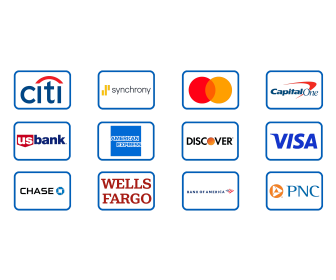How to Use a Credit Card Without Debt
Credit cards can be powerful tools for building credit, earning rewards, and managing cash flow — but only if you use them wisely. Many people fall into the trap of debt because they treat credit like free money. The truth is simpler: when used correctly, a credit card can work for you, not against you. Here’s how to use one without falling into debt.
1. Treat Credit Like Cash You Already Have
The number one rule of responsible credit use is to only spend money you already have in your checking account. Think of your credit card as a payment tool, not as borrowed money. Every purchase should be something you can pay off in full when your bill arrives.
- Ask before swiping: “Could I pay for this right now with cash?” If not, skip it.
- Use your debit balance as your limit: Keep track of spending as if funds are instantly deducted.
- Set alerts: Many card apps allow you to set spending limits or reminders.
2. Pay the Full Balance Every Month
Credit cards only become expensive when you carry a balance. Interest rates (APRs) often exceed 20%, turning small balances into major debt. Paying the full amount before the due date eliminates interest entirely and keeps your credit utilization low.
- Set up autopay: Automatically pay the full statement balance each month.
- Never pay the minimum: It covers mostly interest and extends debt for months or years.
- Check due dates: Align payments with your payday for consistency.
3. Keep Utilization Under 30% — or Better, 10%
Credit utilization — how much of your available credit you’re using — is a key part of your credit score. Staying under 30% is good, but keeping it below 10% shows lenders you manage credit responsibly.
- Example: If your limit is $1,000, try to stay under $100–$300 in reported balances.
- Pay early: Paying before your statement closes reduces your reported balance.
- Ask for a limit increase: A higher limit naturally lowers your utilization percentage.
4. Use Rewards — Don’t Chase Them
Cash-back and travel rewards can make credit cards profitable, but chasing bonuses can lead to overspending. Rewards are valuable only when they come from planned, necessary purchases — not impulse buys.
- Stick to your normal budget: Spend as you would with cash.
- Redeem wisely: Statement credits, travel points, or high-value redemptions offer the best returns.
- Ignore hype: Don’t open new cards solely for sign-up bonuses if you can’t meet the spend safely.
5. Monitor Your Account Regularly
Checking your account weekly helps you stay aware of your spending and detect unauthorized charges early. Credit cards also include strong fraud protection, so you’re not liable if you report issues quickly.
- Use the app: Review transactions and pending charges every few days.
- Turn on alerts: Get notified for every purchase above a certain amount.
- Report errors fast: Dispute suspicious charges within 60 days to stay protected.
6. Build Good Habits for the Long Term
Using a credit card without debt isn’t about strict rules — it’s about consistent habits. When you pay in full, keep balances low, and spend mindfully, your credit grows quietly in the background. Over time, that means better rates on loans, higher limits, and more financial freedom.
- Keep cards open: Older accounts improve your credit history length.
- Use periodically: Occasional charges keep the card active and reporting.
- Stay patient: Credit health builds through steady, responsible use — not shortcuts.
Expert insight: Debt-free credit card use is less about willpower and more about systems. Automate payments, monitor your account, and view your card as a tool for convenience — not credit. The less mental energy it takes, the more consistent your success will be.
Final Thoughts
Using a credit card without falling into debt is entirely possible with the right mindset and habits. Pay in full every month, keep utilization low, and spend only what you can afford today. When used correctly, your credit card becomes a tool for rewards and financial growth — not a gateway to debt.
Not financial advice. Credit card terms and rates vary by issuer. Always review your card agreement, billing cycle, and payment due dates before relying on specific strategies.



